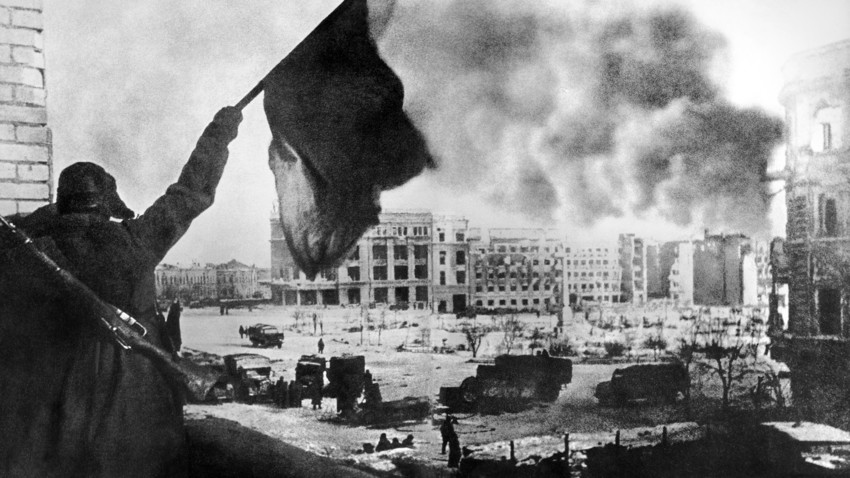On June 5, the official account of the British royal family made a quirky little error. In the run-up to the 75th anniversary celebrations of the D-Day landings, Queen Elizabeth was introduced to the leaders of the western world assembled in United Kingdom’s Portsmouth. Among those present was German chancellor Angela Merkel. The Twitter handle posted a video of the monarch meeting various heads of State, including Merkel with the caption: The Queen was introduced to leaders by the Prime Minister – each representing the allied nations that took part in D-Day.”
Considering that Germany was the country the Allied forces were fighting in Normandy, the tweet provoked bemused reactions from the twitterati. The tweet and the video were subsequently deleted, and a series of pictures of the monarch shaking hands with veterans and some of the leaders of the erstwhile Allied Powers, except for Merkel, were posted instead.
Among the reactions that the tweet evoked were not-so-gentle reminders of Russia’s conspicuous absence at the ceremony. Russian president Vladimir Putin was not invited to the event. This is despite the fact that Russia’s predecessor state, the Soviet Union, played the single most important part in the defeat of the Nazi Germany in World War II. Even at the peak of the Cold War, the Soviet Union was not left out of the commemorations and Russia continued to participate in the D-Day commemorations until recently.
On the other hand, over the years, we have seen sustained efforts to minimize the role of the eastern front in the war against Nazi Germany. From official celebrations such as D-Day to popular culture, World War II has often sought to be portrayed as a battle for freedom waged by the west against the Nazis. A key part of this has been the portrayal of the Normandy landings as the turning point in the war – the term D-Day speaks for itself.
History though has another story to tell. The Normandy landings and the opening of the western front were a key moment in the western theater of the war but it was something the Soviets had been requesting since 1942. The Germans invaded the Soviet Union on June 22, 1941 and while the Soviets suffered initial setbacks, over time, and through countless sacrifices, they managed to push the Germans back. The western powers did deliver supplies to the Soviets in a series of very risky operations but the titanic force required to cripple the German war machine was from the side of the Soviets. The Soviet Union lost more than 13% of its total national population, with the death toll estimated to be between 20-23 million. In absolute numbers, it suffered the greatest wartime destruction in history.
The Soviets were also especially targeted as a nation by Nazi forces. The Nazi project of Lebensbraum envisaged by Hitler, was a massive colonizing and resettlement of lands between Germany and the Urals, with Germans displacing the native Slavic populations. The war time strategy of the Nazis also involved the ‘Commissar Order’ which sanctioned shooting at sight all known Soviet political officers and prisoners, leading to disproportionately higher deaths of Soviet prisoners of war at the hands of the Nazis. This was to break down the political and tactical unity of the east European Allied forces that was held in place by Soviet forces. This was also because of the primary ideological battle was between fascism and socialism, especially because most anti-fascist resistance fronts across Europe were led by communists with the tactical and military support of the Soviets. Consequently, Soviet PoW death rates were as high as 45% compared to the 3-5% for others.
A key moment in the eastern front was the defeat of the German forces at the Battle of Stalingrad after a 5-month-long conflict that killed nearly 2 million people. Other battles such as Kursk in 1943 and the breaking of the 842-day siege of Leningrad in January 1944 proved decisive moments as well. Around 70% of the German military deaths were in fighting the Soviets alone, depleting the military superiority the Germans had over the western countries.
However, much of these gory truths are forgotten today as the commemoration of World War II has become as much about pandering to American interests and ideology.
Incidentally, Russia announced on June 6 that it would ask the United Nations to declare the victory in World War II as the ‘heritage of humanity,’ while also making the monuments to those who fought against the Nazis as part of a global memorial.
It is high time we get out of the hegemonic narrative of the West and acknowledge the sacrifices of the men and women of the Soviet Union who fought valiantly to liberate the world from fascism.





